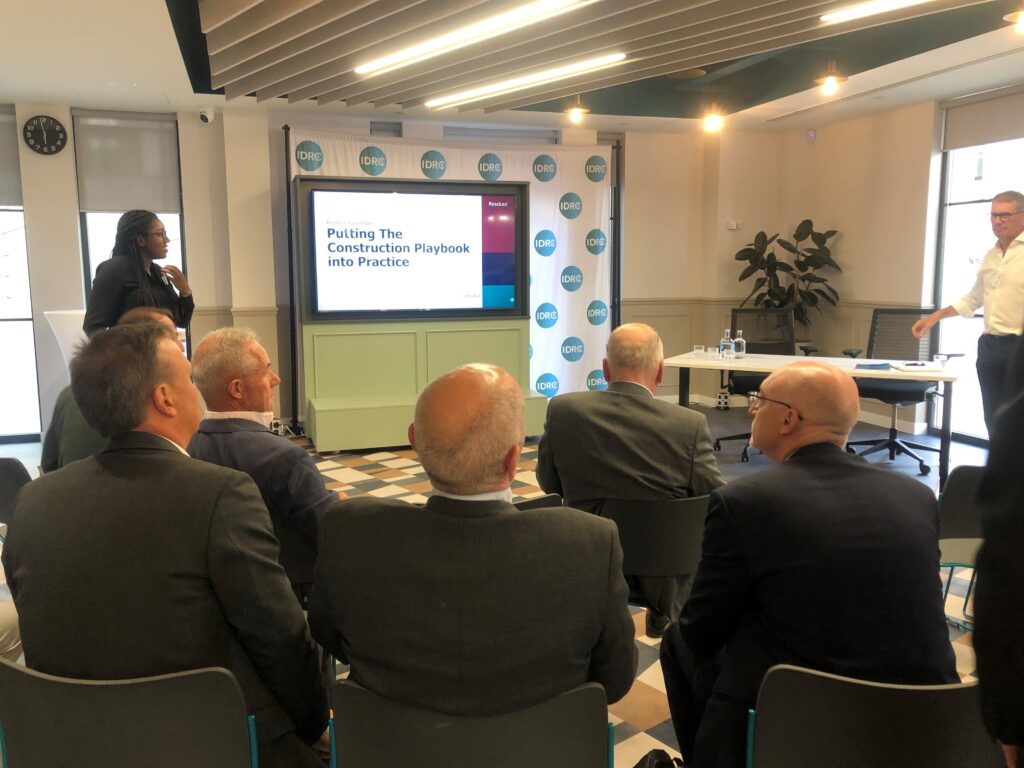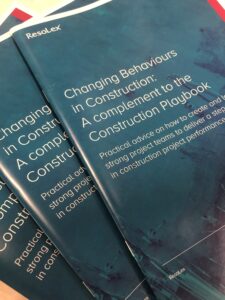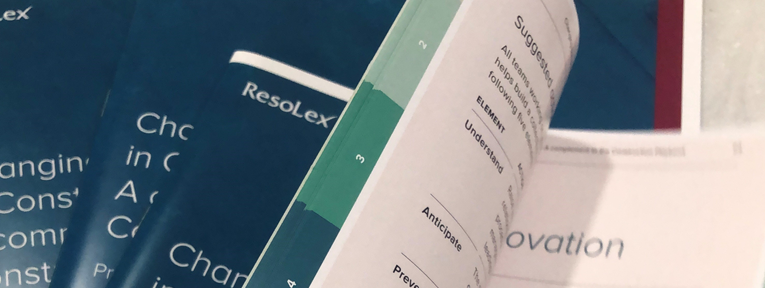Putting The Construction Playbook into Practice – 30th June 2022
Facilitated by Ed Moore and Kelachi Amadi-Echendu
ResoLex’s Roundtable series recommenced with our first in-person session since Autumn 2019 and in our new home – you may have seen, we have relocated along with our friends from the International Dispute Resolution Centre to Paternoster Lane right next to the beautiful St. Paul’s Cathedral – where we welcomed a select group to delve into some of the key aspects of The Construction Playbook.

Our Chief Exec, Ed opened the session by setting out our view that the success of major projects hinges on three critical interlinked elements; Technical, Commercial and Social. His observation is that The Construction Playbook continues the worthy objective of modernising the construction industry. However, reading through the document one can see that its focus is primarily on a project’s technical and commercial elements, but has little to say on the social element, on the people that deliver projects.
Our Senior Consultant, Kelachi then introduced the report we recently produced, Changing Behaviours in Construction: A complement to The Construction Playbook. The report brings together our experience and contributions from our Associates and is designed to act as a complement to The Construction Playbook. It provides practical guidance on the behavioural and cultural elements that supplement some of the key recommendations in the Playbook, focusing on actions and activities that we know through our experience help to build a project’s ‘social capital’.
Our Roundtable sessions are designed to be an interactive discussions rather than a lecture. We, therefore, had an interactive session with participation from everyone in the room, offering a range of perspectives around two key topics:
- Collaborative Leadership
Leadership has been a hot topic within the industry lately. Kelachi pointed out that it is discussed throughout our report and was recently raised in the second iteration of the ICE review: A Systems Approach to Infrastructure Delivery. An article in the NCE references the report as identifying the need for projects to move on from the habit of appointing ‘hero leaders’ – you can find the full article here.
There was consensus in the room that when faced with complexity, there is a need to adopt different leadership styles and attributes and, that collaborative leadership is desirable, but it is probably more important to embed the right culture at the start. The discussion also brought out the recognition that the leadership needs of a project change as the project/programme moves through the cycle. In modern construction, leaders need to be truly agile, and able to adjust their approach depending on circumstances.
- Front End Loading
Ed picked up on the requirement in the Playbook to put more time into the start of a project to think through how a team will work together before moving into the task of construction. The question to the room was the extent to which this would add value.
The consensus was that time spent working through potential issues with the full design and delivery team, ideally producing a digital twin, would ultimately produce a better outcome. The proviso, however, was that project teams need to be clear on the main focus, as time can easily be frittered away on inconsequential matters.
The other challenge identified is that upfront investment in building relationships could be wasted if individuals involved in the early stages of a project then quickly moved on to other projects or roles. The answer to this problem was seen to be the need to proactively establish a strong culture so that new entrants to the project would quickly pick up the required mindset and behaviours set out in the beginning.
Summary
Taking an overview of the evening’s discussion, the common perspective was a recognition that the social, and therefore people component is a key element in the shifting of behaviours to enable the construction industry to deal with the complexity and uncertainty that are features of our current environment. The industry must therefore focus more effort to train leaders in how to become more agile and understand how to build project cultures that will embed collaborative ways of working that will endure through the life cycle of a project.
You can access The Construction Playbook and our report through the links below:

Changing Behaviours in Construction: A complement to The Construction Playbook
Tony Llewellyn – 4 July 2022
